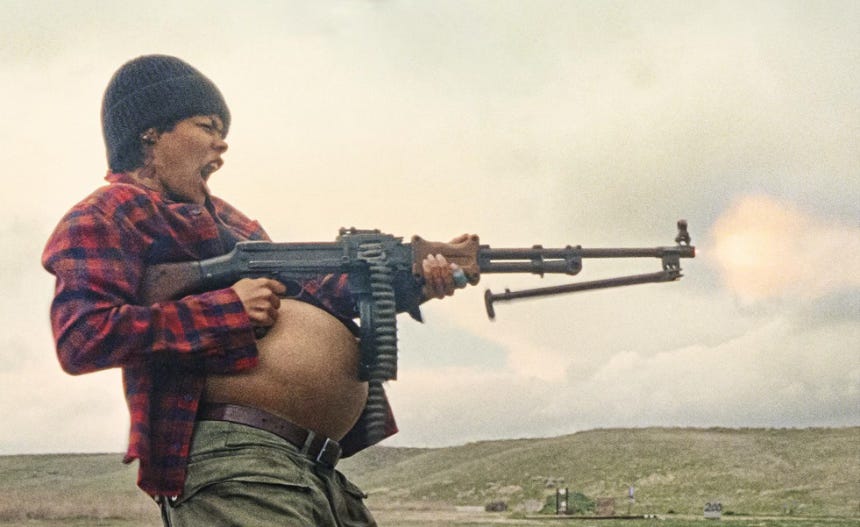One Battle After Another
2025
This is the year that auteurs chose to make action movies. First we got the very good Caught Stealing from Darren Aronofsky. Now we have Paul Thomas Anderson’s excellent One Battle After Another. What next? Will Jim Jarmusch’s Father Mother Sister Brother see the titular quartet fighting to the death amid CGI explosions? It’s quite an odd phenomenon, an…




